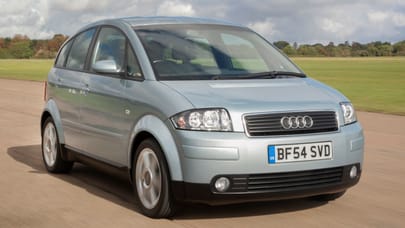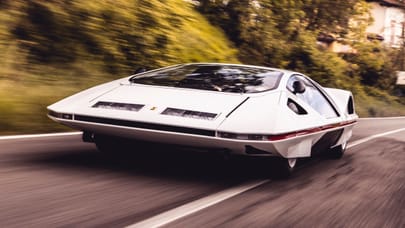
Bruno Sacco: 10 of the legendary Mercedes designer’s best models
From two SL generations and the mass-produced 190 to the first modern S-Class, here's Sacco at his best


Last week, the car world mourned the loss of one of its great designers, Bruno Sacco, aged 90. He was responsible for some of the most iconic Mercedes-Benz models of the late Twentieth century, with a stint lasting over four decades.
Some of them went on to sell by the millions, and most of them continue to be commonplace in big cities. And just to help you remember how significant his contributions to automotive design have been, here are 10 of his greatest hits. You might just recognise a few of them…
Advertisement - Page continues belowSL-Class (R129)

His first SL design, and a worthy successor to the long-serving R107. That long bonnet and the boxy light signatures are typical Sacco cues, and were a clear hit with the public since well over 200,000 of these things were sold. They’re still affordable - for the moment - in case you fancied one.
190 (W201)

One of Merc’s most important cars. The mid-sized, four-door, five-seat template established with the 190 effectively evolved and was reused in subsequent models to huge success. Led by that pronounced grille and the reassuring black stripe along the rear bumper, this safe, trusty approach has become a familiar sight around the world.
Advertisement - Page continues belowS-Class (W126)

Otherwise known as the second generation of the S-Class, the W126 had plenty to prove as Mercedes wanted to establish the lineage as its luxury leader. That meant it had to look the part too, and Sacco certainly delivered. The original saloon design was so adaptable that the coupe eventually became the fantastical 560 SEL AMG.
CLK (C208)

Four circular lamps and coupe body style: it must be the first-generation CLK, right? Correct, and what a piece of design this is. Even by today’s standards, where cars are getting bigger and even boxier, the original CLK has plenty of on-road presence and personality. Loads more personality in the CLK GTR and CLK DTM pair, too.
W124

Much like the aforementioned W201, the W214 is an incredibly important car for Mercedes because it eventually became what we now know as the E-Class. It was also the first car to be fitted with Merc’s iconic ‘flat-faced’ alloys with those circular holes around the outer rim. Classy old thing.
E-Class (W210)

Similar in approach to the CLK, the second-generation E-Class snatched the front/rear-end design but effectively applied it to a saloon. The resulting E55 AMG wagon remains one of our favourite-looking hot estates of all time. Michael Schumacher even owned one.
Advertisement - Page continues belowW123

Another sturdily designed machine with a high production count and some interesting design traits, namely the bulged grille, lifted stance and the arrow-straight rear deck. The W123 even became the go-to choice for thousands of cabbies around Germany, a true mark of respect.
S-Class (W220)

This version of the S-Class took a huge leap in design form, but the basic cues remained the same: three - now swoopier - boxes to form a long, desirable executive limousine. A lot of... car, this.
Advertisement - Page continues belowSL-Class (R230)

The R230 wasn’t as important a car as the W220, nor as successful on the sales charts as the 190, but goodness isn’t it cool? It was Sacco’s last job for Mercedes. What a farewell.
C111 Concept

Gullwing doors, dual bonnet scoops, tiny alloy wheels and pop-up headlights: this was Sacco allowed to roam at his unchecked creative best. And what a stunning machine we got as a result. The C111 never made production of course, but it proved to be a valuable experimental palate for Mercedes to, er, experiment with. If only, right?
Trending this week
- Long Term Review
Is the BMW 550e the ultimate long road-trip car?







